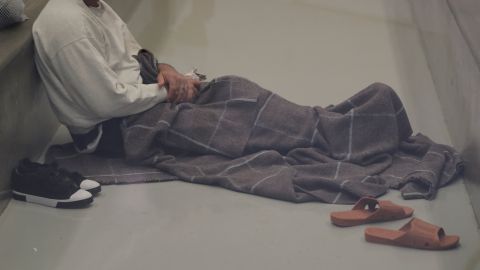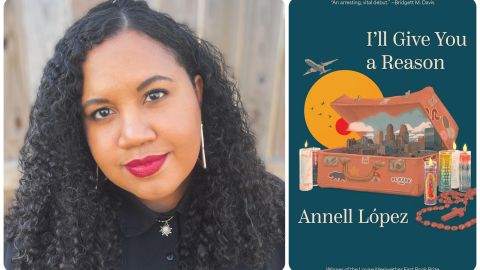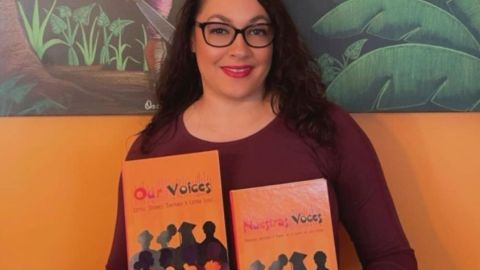8 Things I Learned About Alcoholism Since Going Into Recovery
Waking up one day and recognizing that you have an addiction is never easy

Photo: Unsplash/@kyllik
Waking up one day and recognizing that you have an addiction is never easy. Whether you are addicted to sugar, alcohol like I was, or an illicit substance, entering into recovery is a decision that is brave and difficult. I should know. I began my recovery from alcoholism over two years ago now. In those two years, I learned some hard and very necessary lessons.
I learned how to socialize without drinking, the importance of having a support system, and what starting my life over looks like. It was never easy, but I continued to persevere with the help of my husband, my family, loyal friends, and my therapist. And, of course, of friends I have met in real life and online who are also on this journey of recovery. I’ve also learned lessons by reading great books from those who have been through this before you (and who have been doing it a lot longer and a lot more successfully) and have done my best to welcome newbies into the mostly wonderful world of being an addict in recovery. Although it’s not an easy journey, here are eight lessons that I have learned in these past two years of being sober.
wp_*posts
1. There is no such thing as a stereotypical addict.

When I was in rehab for my alcohol addiction, I met a lot of other addicts who had very different stories. Before meeting the people that eventually became my friends and part of my support system, I thought that all addicts were the same. I believed the stereotype that they came from broken homes, started drugs early, spiraled, stole all their parents money, and the like. But that image doesn’t actually exist. Every addict is different and everyone’s story is unique. Give people a chance when you meet them.
wp_*posts
2. The 12 step meeting don’t work for all, and that’s okay.

To be honest, one of the ways that I was afraid I failed as a recovering addict is that I simply wasn’t a fan of the typical 12-step meetings. All throughout rehab and my first six months of sobriety, I kept going to them. But I never quite found my tribe and I never quite felt comfortable with some of the language that was used. Instead, I found alternate meetings and my own solutions — and that works for me. In recovery, you have to find your own thing and what works for you. And make sure you keep doing it because that’s the only way to ensure your continued sober success.
wp_*posts
3. You can’t get anywhere without a solid support system.

Having a support system as a person in recovery is absolutely crucial to your success. It is the simple truth and the number one thing I learned from day one. Not only did I make friends in recovery with other addicts, but I also invested in the friendships I already had. Telling my closest friends what I was going through was one of the most difficult things I had to do, but it was well worth it when they all rallied against me and stood by me during the difficult first few months. My family and my spouse, too, were crucial to forming a solid support system for when I was going through a tough time. In fact, I still lean on all of them in order to get me through extra stressful weeks.
wp_*posts
4. Therapy works, period.

I love my therapist. There, I said it. I know that might seem like a pretty odd confession, but it’s true. One of the things that I really needed in recovery was to talk to a professional about what was going on in my head. Not only why I was drinking but what led me to engage in harmful behaviors. Although I haven’t had a drink in over two years, I still talk to my therapist regularly. Why? Because it’s all part of my upkeep. I consider her a confidant who I can go to not only when I am having alcohol-related issues, but also when I need to talk about my anxiety, what’s stressing me out and, most importantly, how to handle it all without relying on alcohol as I did before.
wp_*posts
5. Restarting your life might not always look the way you think it will.

One of the toughest lessons that I learned in recovery is that, in some way or another, you are basically restarting your life as a newly sober person when you commit to no longer having drugs or alcohol. This process looks differently for people, but I know many addicts who changed jobs, moved apartments, let go of harmful friendships, and even completely changed where they lived. For me, I went from living in New York City to moving back in with my parents in Florida in order to figure out my next steps. What happened after that was a lot of hard work to rebuild my life, but it was well worth it. In whatever way you hit RESTART, just know that we’re all doing it too.
wp_*posts
6. Lapses happen, but you need to be kind to yourself.

In my recovery program (SMART Recovery), we learned that lapses and relapses happen. There’s people who enter recovery and never, ever touch another drink again and those people are my heroes. I’m not one of those people. In my early recovery, I made a few mistakes and beat myself up for them. Then I found my therapist and her number one piece of advice, which I admit to having to remind myself of over and over again, is that I should always be kind to myself. As an addict, harmful thoughts about yourself and especially about your past are rampant. But, well, it’s really important to continue to do better while also giving yourself a break for your past mistakes.
wp_*posts
7. The problem is bigger than just me.

You’ve probably heard plenty about the opioid crisis in our country and you might have some opinions about it. There’s also legalized marijuana and I know you definitely have some opinions about that. That’s okay. The drug problem in our country is bigger than my problem, bigger than the issues with the rehab community, and bigger than whether or not one state or another legalizes weed. As President Barack Obama and Macklemore said in the realest video about drug addiction: It is important to get rid of the stigma surrounding drug addiction and help people to seek treatment.
“When you’re going through it, it’s hard to imagine there could be anything worse than addiction,” Macklemore said. “But, shame and this stigma associated with the disease keeps too many people from seeking the help that they actually need. Addiction isn’t a personal choice or a personal failing, and sometimes it takes more than a strong will to get better. It takes a strong community and accessible resources… We have to tell people who need help that it’s OK to ask for it. We gotta make sure they know where to get it.”
wp_*posts
8. Speaking out about my recovery is an important part of my recovery.

Just as Macklemore, a former drug addict, has decided to use his celebrity to amplify the issues that are important to him, I am doing the same by being open and honest about my addiction and recovery. The most real thing I could say is probably that it has been a long, hard journey. I could also tell you about some of my most shameful moments during active addiction and my proudest moments in recovery. I share with the people around me because it is important to me that they not only understand what I have been through but also understand that addiction can happen to anyone.
And while it can happen to anyone, anyone can also take the steps to recover, build a new life, and thrive.

















